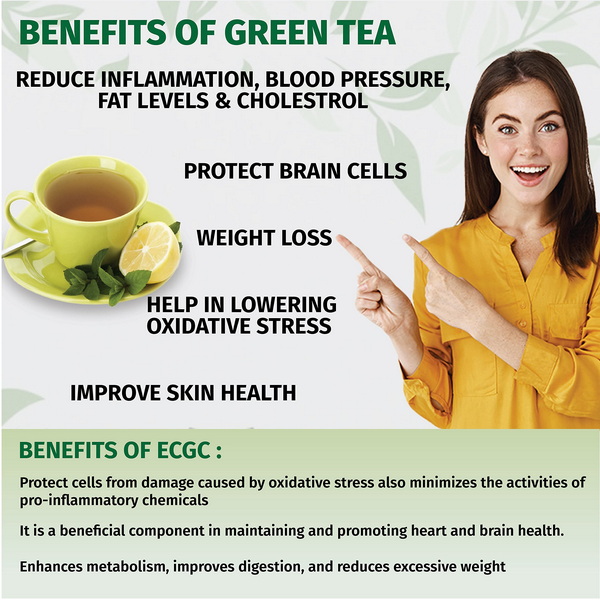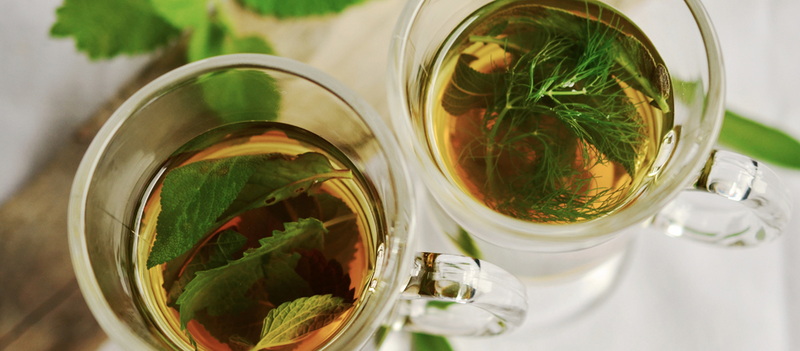Content Menu
● What is Green Tea?
● What is Green Tea Extract?
● Comparison of Nutritional Content
● Health Benefits of Drinking Green Tea
>> Antioxidant Properties
>> Weight Loss Support
>> Brain Function Improvement
>> Heart Health
>> Cancer Prevention
● Health Benefits of Green Tea Extract
>> Enhanced Weight Loss Effects
>> Improved Metabolic Rate
>> Greater Antioxidant Capacity
● Can You Get the Benefits of Green Tea Extract from Drinking Green Tea?
● Dosage Differences
● Bioavailability
● Personal Preference
● How to Incorporate Both into Your Diet
● Potential Side Effects and Considerations
● Conclusion
● FAQ
>> 1. Is it better to drink green tea or take supplements?
>> 2. How much green tea should I drink daily?
>> 3. Can I take green tea extract if I'm sensitive to caffeine?
>> 4. Are there any side effects from taking green tea extract?
>> 5. Can I combine both forms in my diet?
● Citations:
Green tea has long been celebrated for its numerous health benefits, including its potential to aid in weight loss, improve brain function, and reduce the risk of various diseases. Among its many components, green tea extract is often highlighted for its concentrated health benefits. This article will explore whether drinking green tea provides the same benefits as consuming green tea extract and delve into the science behind both forms.

What is Green Tea?
Green tea is made from the leaves of the *Camellia sinensis* plant. Unlike black tea, which is fermented, green tea leaves are quickly dried and steamed to prevent oxidation. This process preserves the natural compounds found in the leaves, including polyphenols, catechins, and flavonoids.
What is Green Tea Extract?
Green tea extract is a concentrated form of green tea that contains high levels of antioxidants, particularly epigallocatechin gallate (EGCG). It is commonly available in supplement form and is touted for its health benefits, including weight loss and improved metabolism.
Comparison of Nutritional Content
| Component | Green Tea (per cup) | Green Tea Extract (per serving) |
| Caffeine | 30-50 mg | 100-200 mg |
| EGCG | 50-100 mg | 300-500 mg |
| Antioxidants | Moderate | High |
| Calories | 2-3 | 0 |
Health Benefits of Drinking Green Tea
Drinking green tea offers several health benefits that are well-documented in scientific studies:
Antioxidant Properties
Green tea is rich in antioxidants, which help combat oxidative stress in the body. This can lead to a reduced risk of chronic diseases such as heart disease and cancer. The primary antioxidants in green tea are catechins, particularly EGCG, which have been shown to increase antioxidant capacity and protect against oxidative stress[1][2].
Weight Loss Support
Research suggests that green tea can enhance metabolic rate and promote fat oxidation. The catechins in green tea may increase energy expenditure and fat burning during exercise. A meta-analysis indicated that regular consumption of green tea could lead to modest weight loss over time, especially when combined with exercise[3][4].
Brain Function Improvement
The caffeine and amino acid L-theanine found in green tea can work together to improve brain function. Studies have shown that these compounds can enhance memory, attention, and cognitive performance. Additionally, EGCG has neuroprotective properties that may help reduce the risk of neurodegenerative diseases such as Alzheimer's[5][6].
Heart Health
Regular consumption of green tea has been linked to lower cholesterol levels and improved cardiovascular health. The antioxidants in green tea may help reduce blood pressure and improve blood vessel function. Studies have demonstrated that individuals who consume green tea regularly have a lower risk of developing heart disease[7][8].
Cancer Prevention
Some studies suggest that the polyphenols in green tea may protect against certain types of cancer by inhibiting tumor growth and reducing inflammation. While more research is needed to establish definitive links between green tea consumption and cancer prevention, preliminary findings are promising[9][10].

Health Benefits of Green Tea Extract
While both green tea and its extract offer health benefits, the concentrated nature of green tea extract allows for more potent effects:
Enhanced Weight Loss Effects
Due to its higher concentration of EGCG, green tea extract may be more effective for weight loss than drinking green tea alone. It can help increase fat oxidation more significantly during exercise[1][2]. A study found that participants taking a daily dose of green tea extract experienced greater reductions in body weight compared to those who did not take the supplement[11].
Improved Metabolic Rate
Green tea extract has been shown to boost metabolism more effectively than regular green tea. This can be particularly beneficial for those looking to lose weight or maintain a healthy weight. Evidence suggests that taking green tea extract can lead to an increase in calorie burning even at rest[12][13].
Greater Antioxidant Capacity
The concentrated form of antioxidants in green tea extract means it can provide stronger protection against oxidative damage compared to drinking brewed green tea. Research indicates that individuals taking supplements experience higher levels of circulating antioxidants in their blood[14][15].
Can You Get the Benefits of Green Tea Extract from Drinking Green Tea?
While drinking green tea does provide some health benefits, it may not deliver the same level of concentration as taking a supplement. Here are some considerations:
Dosage Differences
To achieve the same effects as a standard dose of green tea extract (typically around 300 mg of EGCG), one would need to consume several cups of brewed green tea daily. This can be impractical for many people[16][17].
Bioavailability
The body absorbs nutrients differently depending on their form. The bioavailability of catechins may vary between drinking brewed green tea and consuming an extract. Some studies suggest that extracts may be absorbed more efficiently due to their concentrated nature[18].
Personal Preference
Some individuals may prefer the taste and ritual of drinking brewed green tea over taking supplements. Others might find it easier to incorporate extracts into their daily routine through capsules or powders.
How to Incorporate Both into Your Diet
To maximize health benefits, consider incorporating both brewed green tea and green tea extract into your diet:
- Brewed Green Tea: Enjoy 2-3 cups daily as part of your hydration routine.
- Green Tea Extract Supplements: If you're looking for specific health benefits like weight loss or antioxidant support, consider taking a high-quality supplement as directed on the label.
Potential Side Effects and Considerations
While both forms are generally safe for most people when consumed in moderation, there are some potential side effects associated with excessive intake:
- Caffeine Sensitivity: Both brewed green tea and extracts contain caffeine; excessive consumption can lead to side effects such as insomnia, anxiety, or heart palpitations.
- Liver Health: High doses of green tea extract have been linked to liver toxicity in rare cases; thus, it's essential to consult a healthcare provider before starting any new supplement regimen[19][20].
- Interactions with Medications: Green tea extracts can interact with certain medications, including blood thinners; always discuss with your doctor if you're considering adding them to your routine.
Conclusion
In summary, while drinking green tea provides numerous health benefits due to its rich content of antioxidants and other beneficial compounds, it may not deliver the same concentrated effects as taking a green tea extract supplement. Both forms have their advantages; incorporating them into your diet can lead to enhanced overall health. Ultimately, personal preference and lifestyle choices will dictate whether one chooses to drink brewed green tea or take extracts.

FAQ
1. Is it better to drink green tea or take supplements?
Both have their benefits; drinking green tea provides hydration and enjoyment while supplements offer concentrated doses of beneficial compounds.
2. How much green tea should I drink daily?
Most studies suggest consuming 2-3 cups per day for optimal health benefits.
3. Can I take green tea extract if I'm sensitive to caffeine?
Yes, many decaffeinated forms of green tea extract are available for those sensitive to caffeine.
4. Are there any side effects from taking green tea extract?
In moderation, it's generally safe; however, excessive consumption can lead to liver issues or gastrointestinal discomfort.
5. Can I combine both forms in my diet?
Absolutely! Combining brewed green tea with extracts can maximize health benefits while keeping your routine enjoyable.
Citations:
[1] https://www.healthline.com/nutrition/10-benefits-of-green-tea-extract
[2] https://pmc.ncbi.nlm.nih.gov/articles/PMC2855614/
[3] https://www.health.com/nutrition/benefits-green-tea
[4] https://www.frontiersin.org/journals/nutrition/articles/10.3389/fnut.2022.1084455/full
[5] https://staarlabs.com/blogs/news/green-tea-vs-green-tea-extract
[6] https://health.clevelandclinic.org/green-tea-extract-a-better-way-to-boost-energy-or-not
[7] https://pmc.ncbi.nlm.nih.gov/articles/PMC6412948/
[8] https://pmc.ncbi.nlm.nih.gov/articles/PMC5583402/
[9] https://hsph.harvard.edu/news/green-tea-healthy-habit/
[10] https://www.medicalnewstoday.com/articles/269538
[11] https://www.mountsinai.org/health-library/herb/green-tea
[12] https://health.clevelandclinic.org/green-tea-extract-a-better-way-to-boost-energy-or-not
[13] https://www.webmd.com/diet/health-benefits-green-tea
[14] https://www.webmd.com/vitamins/ai/ingredientmono-960/green-tea
[15] https://www.urmc.rochester.edu/encyclopedia/content?contenttypeid=19&contentid=greenteaextract
[16] https://www.facebook.com/realdoctormike/videos/7-health-benefits-of-green-tea-how-to-drink-it/729211451160679/
[17] https://coopercomplete.com/blog/are-green-tea-and-green-tea-supplements-the-same/
[18] https://magazine.labdoor.com/green-tea-supplements-vs-drinking-green-tea/
[19] https://www.healthline.com/nutrition/top-10-evidence-based-health-benefits-of-green-tea
[20] https://health.clevelandclinic.org/green-tea-health-benefits
[21] https://hsph.harvard.edu/news/green-tea-healthy-habit/
[22] https://pmc.ncbi.nlm.nih.gov/articles/PMC2748751/
[23] https://pmc.ncbi.nlm.nih.gov/articles/PMC6412948/






























